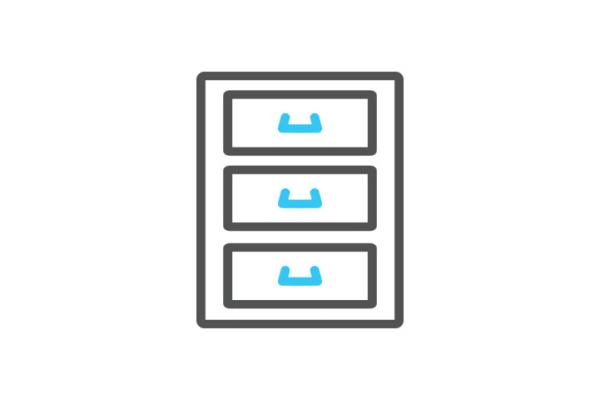HERA was established as a direct consequence of the lessons learned from the initial management of the COVID-19 pandemic, to ensure a solid Union response to serious-cross border health threats and secure ready availability and accessibility of medical countermeasures. Since then, HERA has proven itself in actively addressing health crises within the EU and beyond, investing in improved preparedness while responding to emerging crises in support of Member States, our citizens, and partners globally.
Below is an overview of the immediate response activities carried out by HERA since its establishment in September 2021, as well as other measures undertaken to ensure sustainable capacity-building in case of a new cross-border health emergency.
Responding to the COVID-19 pandemic
As a reaction to the COVID-19 pandemic, The Commission and Member States took a common EU approach to securing supplies and facilitating their distribution, helping to ensure timely access and availability all across the EU.
As outlined in the EU Vaccines Strategy, through Advance Purchase Agreements with individual vaccine producers, the Commission secured the right to buy up to 4.2 billion vaccine doses in a given timeframe and at a given price. In return, the Commission financed a part of the upfront costs from the EUR 2.7 billion Emergency Support Instrument. This funding was considered a down-payment on the vaccines that Member States purchased.
HERA is responsible for the management and implementation of the COVID-19 contracts, on behalf of the Member States: this includes negotiations and re-negotiations of the vaccines contracts, follow-up on deliveries and adaptation of the vaccines to circulating variant.
As of August 2023, a total of 84.8% of the EU adult population has been vaccinated at least once against the virus. The Commission will be further supporting Member States in securing access to vaccines to protect individuals, in particular those at risk of progression to severe disease.
Furthermore, HERA supported the commitment to ensure that safe vaccines reach all corners of the world. The Commission and EU countries pledged over €5 billion to COVAX, the global initiative aimed at ensuring equitable access to COVID-19 vaccines and supporting vaccination campaigns in partner countries, to make available 1.8 billion doses of vaccines for 92 low and middle-income countries.
Mpox response
Following the World Health Organization’s (WHO) declaration of mpox as a Public Health Emergency of International Concern (PHEIC) in August 2024, the EU and its Member States responded promptly.
They committed to provide over 580,000 mpox vaccine doses to the Africa Centres for Disease Control and Prevention (Africa CDC), to support efforts in combating the outbreak in the region.
Of this total, HERA contributed a significant share with a commitment of 215,420 doses.
Working closely with partners in the EU and abroad, HERA:
- In December 2024, coordinated the delivery of 13,200 mpox vaccine doses donated to Rwanda Biomedical Centre’s Vaccine Programmes Unit by the Netherlands.
- In November 2024, coordinated the delivery of over 120,000 vaccine doses donated to the Democratic Republic of Congo (DRC) by Member States, in a Team Europe approach:
- 2,300 doses donated by Portugal were delivered on 25 November.
- 20,000 doses donated by Belgium were delivered on 20 November.
- 100,000 doses donated by Germany were delivered on 14 November.
- In October 2024, delivered 5,420 vaccine doses to the Rwanda Biomedical Centre’s Vaccine Programmes Unit.
- In September 2024, delivered 200,000 vaccine doses to the DRC.
This builds on the work that began in 2022 when the global mpox outbreak impacted several EU countries. With around 900 cases reported in 19 Member States, the Commission acted swiftly to coordinate efforts to contain the spread of the disease. Notably:
- Signed a contract with Meridian Medical Technologies in October 2023, to secure up to 100,080 treatment courses against mpox, smallpox and cowpox, to meet the middle and long-term needs of 13 participating countries, and complement the stock built up during the peak of the outbreak.
- Set up a Joint Procurement Framework with 14 Member States in November 2022, to ensure access to effective vaccines in the mid- and long-term, securing up to 2 million doses.
- Purchased over 10 000 treatment courses by September 2022.
- Secured over 109 000 vaccine doses in June 2022, and donated it to the Member States and EU4Health associated countries in less than a month following the outbreak.
The rapid actions of the EU and its Member States effectively brought the mpox outbreak under control, resulting in a very low number of new reported cases by December 2022.
HERA is also working in partnership with Africa CDC to expand access to mpox diagnostics and sequencing in the region, through a EUR 9.4 million grant.
- Factsheet: EU response to the mpox outbreak
Supporting the fight against Ebola in Uganda
In response to the outbreak of Sudan strain of the Ebola virus in September 2022, HERA mobilised €5 million from the EU4Health programme to co-finance clinical trials for medical countermeasures against the disease to advance the development of vaccines or treatments, given their current unavailability.
Following successful containment and the declared end of the outbreak in January 2023, HERA remains committed in its support to the global effort in improving the availability of medical countermeasures targeting Ebola viruses. The WHO and regional partners like the Ugandan government continue to conduct vaccine and therapeutic trials to bolster preparedness for possible future outbreaks, with a significant amount of the funding covered by support from the Commission.
The EU is key global contributor to research and preparedness and response activities against Ebola, supporting the international response through a range of measures.
Investing in the development of broad-spectrum antivirals
Viral infections like Ebola and SARS-CoV2 represent the biggest current pandemic threat and pose a substantial economic and public health burden due to their ability to cross species barriers and cause unpredictable outbreaks of diseases in humans.
Given the necessity to address emerging and re-emerging viral diseases, identified as priority action area in 2022, the Commission strongly supports the development of broad-spectrum antivirals as a key tool for pandemic preparedness. Therapeutics such as antivirals can protect against a wide range of pathogens and therefore have the potential to be ready from ‘day 0’ in an outbreak, providing a vital bridge until other medical countermeasures are available.
Through the EU4Health programme, HERA is targeting two distinct groups of viral families. One support stream fosters the development of broad-spectrum antivirals targeting respiratory RNA viral families, which includes viruses causing flu, COVID-19 and other severe respiratory illnesses. The other stream supports the development of broad-spectrum antivirals targeting viral families known for causing viral haemorrhagic fever; viruses which are covered here include Ebola and Marburg viruses.
Investing in broad-spectrum antivirals enhances both the EU’s but also the global resilience against the threat of pathogens with high pandemic potential, contributing to our common health security.
EU FAB – building ever-warm production capacities in the EU
The aim to make vaccines available to European citizens has paved the way for the Commission’s support to the development of an ever-warm network of industrial production sites. Launched in 2022, EU FAB is a network of vaccine manufacturers in the EU and EEA to quickly manufacture vaccines when and where needed.
EU FAB has the objective to ensure that sufficient and agile manufacturing capacities for different vaccine types are kept operational and can be activated quickly in case of a public health emergency – for mRNA, vector- and protein-based vaccines.
Establishing a global system for wastewater surveillance for public health
Wastewater surveillance has emerged as a powerful and cost-effective tool that complements clinical data by providing unique insights into the presence and spread of pathogens. During the COVID-19 pandemic, wastewater surveillance proved to be a key early warning system, particularly in detecting new variants of SARS-COV2 virus, offering critical evidence for decision-makers.
Wastewater surveillance has the potential to significantly enhance collaboration for pandemic preparedness. HERA supports initiatives aimed at enhancing wastewater surveillance in Member States, including advancements in genomic sequencing.
One of HERA’s objectives is to strengthen wastewater-based surveillance, and to establish efficient data-sharing mechanisms that ensure relevant information on pathogens with pandemic and epidemic potential can be used for evidence-based decision-making.
Building on this foundation, in March 2024 HERA, together with the Joint Research Centre (JRC) and international partners, launched GLOWACON, the Global Consortium for Wastewater and Environmental Surveillance for Public Health. The mission of GLOWACON is to promote the institutionalisation of wastewater and environmental surveillance within public health systems, and to develop a global sentinel system for epidemic outbreaks. By building on existing local, national, and regional efforts, this system will enable early threat detection, prevention, and real-time monitoring, supporting public health decision-making and pandemic preparedness.




